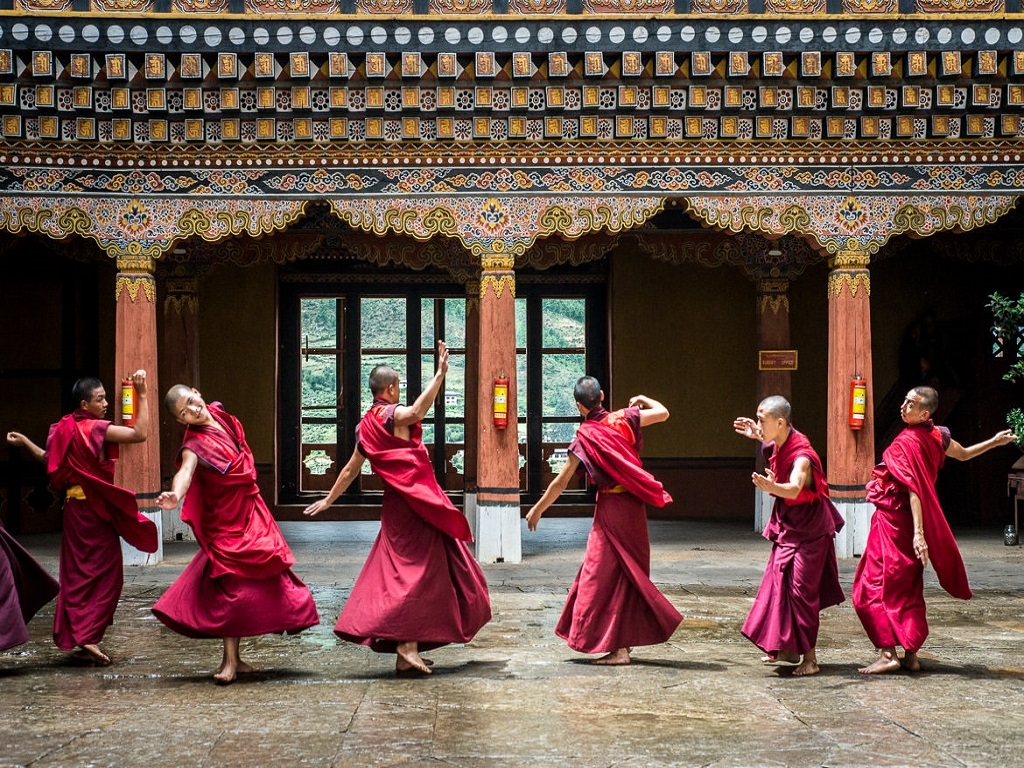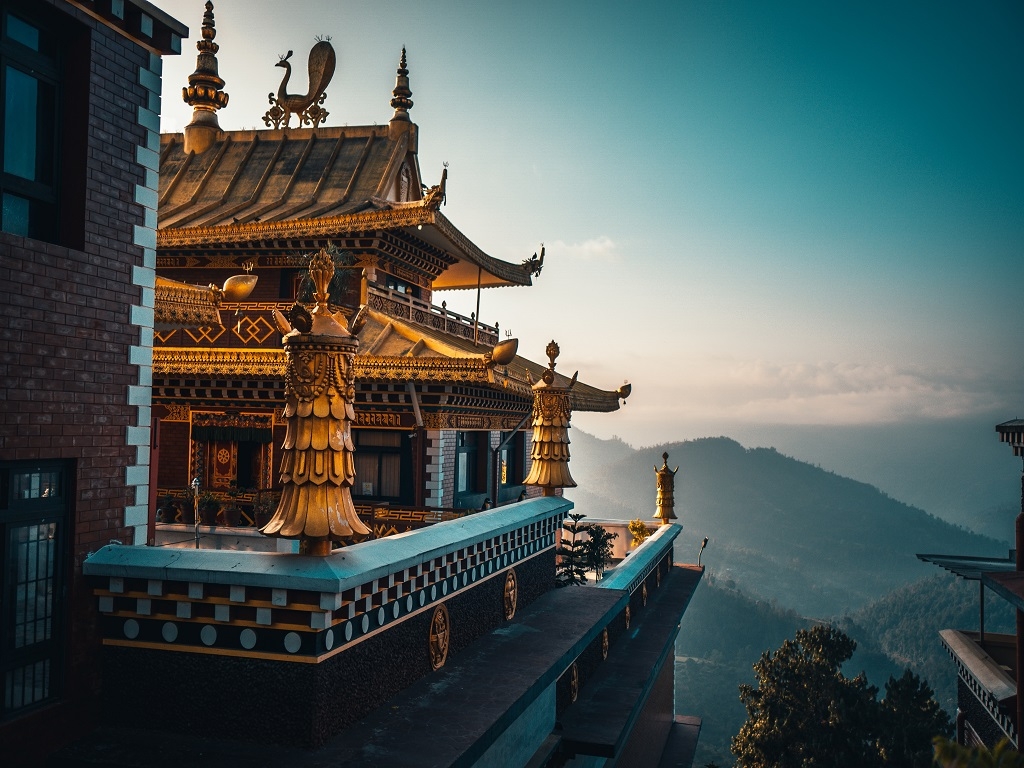IMPORTANT NOTES
Currency
Day 1SINGAPORE – DELHI – SRINAGAR

Assemble at Singapore Changi Airport for your flight to Delhi, the capital city of India. After that, take a domestic flight to Srinagar, renowned as paradise on earth. Here tells the story of the love that Mughal emperors had for this paradise-like vale with deep green rice fields, gardens in bloom and lakes rimmed by floating houseboats, your deluxe accommodation for the next 4 nights.
![]() Meals On Board / Lunch / Dinner
Meals On Board / Lunch / Dinner
Day 2SRINAGAR

Today, proceed to the famous Mughal Gardens of Nishat and Shalimar. These were built by the Mughals in the Persian style of architecture, with terraced lawns, cascading fountains, and paint-box-bright flowerbeds with the panorama of the Lake in front - these Gardens are the Mughal Emperors' concept of paradise. Stop over at the holiest Muslim shrine in Kashmir, the Hazratbal Shrine. This shrine with unmatched reverence is a beautiful structure of immaculate white marble, and it offers a spectacular view of Dal Lake and the mountains afar. Next, enjoy a romantic and soothing Shikara Boat Ride on the lake, indulge in the tranquility and picturesque ride surrounding with plentiful lotus blossoms in spring and golden foliage in autumn. Wrap up the day with a Pheran dress-up session and have fun taking photos for keepsake!
![]() Breakfast / Lunch / Dinner
Breakfast / Lunch / Dinner
Day 3SRINAGAR - GULMARG - SRINAGAR

Explore the beauty of Gulmarg, where you may toddle along vast stretches of flowering meadows and sway through alpine mountains replete with snow. This small yet magnificent town is a haven for adventure seekers and a paradise for nature lovers. The snow-clad peaks and lovely landscapes have provided stunning backgrounds for several Bollywood ventures. Here, you can experience a pony ride at own expense. Next, ride the Gulmarg Gondola, an aerial cable car, to Phase 1 Kungdoor to enjoy sweeping views of snow-covered valleys, forests and mountains – India’s version of the Swiss Alps. As you head back to Srinagar, drop by the local market to observe the locals’ daily routine and the biggest moqsue in Kashmir, Jamia Masjid. It has a magnificent courtyard with 370 wooden pillars and presents a peaceful atmosphere, which stands out against the hustle and bustle of the old bazaars around it.
![]() Breakfast / Lunch / Dinner
Breakfast / Lunch / Dinner
Day 4SRINAGAR – DELHI – AGRA

Today, take a visit to old city of Srinagar, a local market for last minute shopping of local products. Thereafter, transfer to the airport for your flight back to Delhi. Upon arrival, explore the other component of Delhi, Old Delhi. Drive past and catch glimpse of Red Fort while on your way to Shah Jahan’s last architectural extravagance, Jama Masjid. Drive along Rajpath, the capital's broadest avenue, for a view of the Parliament House, the President's House and India Gate (War Memorial Arch). Proceed on to visit the UNESCO World Heritage Site Qutab Minar built by Qutub-ud-Din Aibek in 1199 from sandstone and marble. After lunch, you will set off to Agra, city of the Taj Mahal. This evening, you may wish to watch a musical extravaganza show – Mohabbat The Taj – at your own expense and with advance reservation. A retelling of the romantic love story of Shah Jahan and his beloved wife Mumtaz Mahal, the story will blow you away with its creative dances and dramatic flair.
![]() Breakfast / Lunch / Dinner
Breakfast / Lunch / Dinner
Day 5AGRA – JAIPUR

Cross an item off your bucket list as you mosey over to some of India’s finest architecture in two UNESCO World Heritage Sites. First, visit the Agra Fort, which served as the former residence of the Mughal emperors until 1638. Proceed on to Taj Mahal and walk along the pathway to the mausoleum beside a long reflecting pool with fountains. Crafted from soft, pure marble and bejeweled with semi-precious stones, the building was built by Mughal Emperor Shah Jahan – who was inconsolable at the passing of Mumtaz Mahal, one of his favourite wives – and his grief resulted in the creation of one of the New Seven Wonders of the World. Take your time exploring this magnificent building! Capture and enjoy a magnificent view of Taj Mahal, arguably India’s most famous monument at Mehtab Bagh before we take a relaxing drive to Jaipur, also called the Pink City. The capital of Rajasthan, Jaipur is a historical city built in the 18th century. En route we will visit Chand Baori Step-well built over a thousand years ago in the Abhaneri village of Rajasthan It is one of the largest stepwells in the world and also one of the most beautiful ones.
![]() Meals On Board / Breakfast / Lunch
Meals On Board / Breakfast / Lunch
Day 6JAIPUR

After breakfast, proceed to the Amber Fort and ride up in a jeep. Built in the 17th century and boasting a distinct Hindu-Muslim architectural style, the fort is a key tourist attraction. Next is the UNESCO World Heritage Site Jantar Mantar, a splendid astronomical observatory built in the early 18th century which still contains some 20 oddly shaped astronomical instruments used to measure the distances and positions of celestial objects. Thereafter, take a stroll along the streets of Jaipur and spend time at a bazaar shopping for Bollywood fashion items and accessories. After lunch, visit the Birla Mandir Temple at the base of Moti Dungari Hill in Rajasthan, famous for its impressive architecture; the temple is made of 2,000 tons of pure white marble. This evening, have fun at Chokhi Dhani, a reconstructed ethnic Rajasthani village. Enjoy a myriad of interesting live entertainment activities such as acrobatics on bamboo poles, a puppet show, a bird fortune.
![]() Breakfast / Lunch / Dinner
Breakfast / Lunch / Dinner
Day 7JAIPUR – DELHI – SINGAPORE

Drive past the incredibly unique and iconic Hawa Mahal, also known as the Palace of Winds. The palace’s many intricately latticed windows allow the royal ladies of the Mughal Empire to observe everyday life, such as the activities and processions men partook in, without being seen themselves. Next, take a wide-angle view of Jal Mahal, also known as the Water Palace. From a distance, the building appears to float in the centre of Man Sagar Lake. Spend some time taking in the beauty of this former shooting lodge of the maharajas, a unique site that resembles a stargazer’s playground. After lunch, drive back to Delhi for your flight back to Singapore.
![]() Meals On Board / Breakfast / Lunch
Meals On Board / Breakfast / Lunch
Day 8ARRIVAL SINGAPORE

![]()
 Hi, Lenore
Hi, Lenore




 +65 6704-9199
+65 6704-9199






